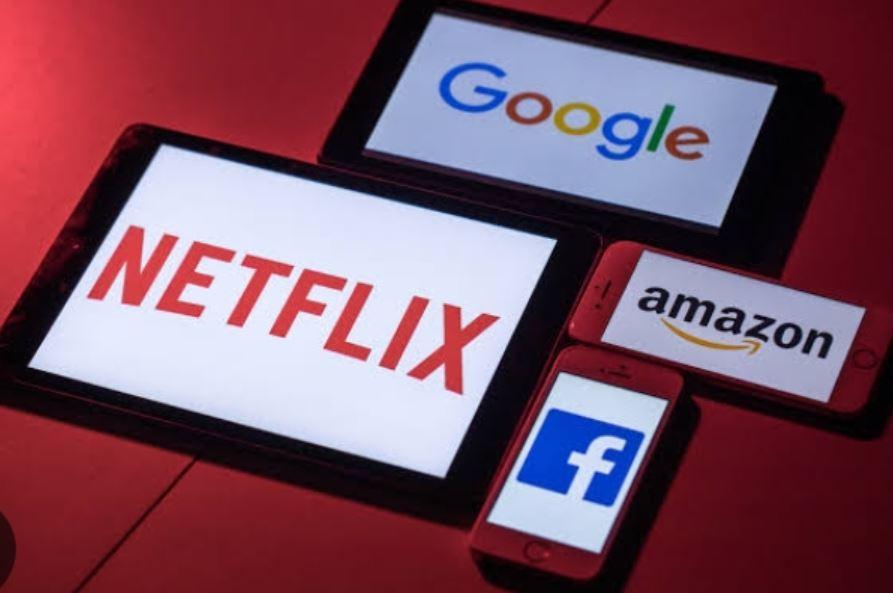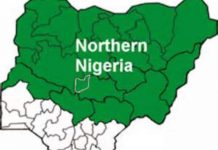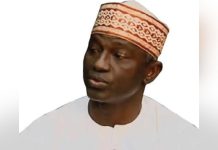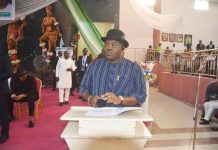By Abba Hamisu Sani
Africa-Press – Nigeria. Nigeria has successfully amassed over 600 billion naira (about 400 million dollars) in Value Added Tax (VAT) from global digital giants like Facebook, Amazon, and Netflix.
Special Adviser to President Bola Tinubu on Tax Policy, Mathew Osanekwu, stated this during a workshop for media practitioners in Abuja on 10th November 2025.
Amendments to the VAT Act under Section 10 have enabled the Federal Inland Revenue Service (FIRS) to tax non-resident companies offering digital services in Nigeria.
These firms, now registered in Nigeria, act as VAT collection agents, aligning with global best practices to ensure taxation from locally consumed services.
The reforms, effective January 2026, aim to modernize Nigeria’s tax system, boost compliance, and broaden the revenue base without introducing new taxes.
Low-income earners (below 800,000 naira annually) and small businesses (under 100 million naira turnover) will benefit from tax exemptions, fostering a progressive framework.
No New Taxes Introduced by Tinubu’s Government
During the workshop, the Federal Government clarified that President Bola Tinubu’s ongoing fiscal and tax reforms have not introduced any new taxes, contrary to widespread speculation.
Chairman of the Presidential Committee on Fiscal Policy and Tax Reforms, Professor Taiwo Oyedele, explained that the reforms were designed to ease the tax burden on low- and middle-income earners while ensuring equity and fairness.
According to him, many of the levies being debated in the public space, including the controversial five percent fuel surcharge, are not new but provisions in long-standing laws predating the current administration.
“It’s not a new tax. Some said the tax is being proposed. Some believe this President has introduced tax after tax, and I challenge them to point to one newly introduced tax,” Oyedele said.
Taxes Hurriedly Introduced at the End of Buhari’s Tenure
Professor Oyedele said that in July 2023, barely two months after assuming office, President Tinubu signed four executive orders suspending taxes that had been hurriedly introduced during the final days of the previous administration. These included duties on plastic items and vehicle importation.
“Many of us are not even aware because this President did not allow those taxes to take effect. They were suspended and eventually removed,” Oyedele added.
He further clarified that the much-debated Cybersecurity Levy was enacted years ago, stressing that Tinubu’s administration did not originate it.
The tax reforms, which take effect in January 2026, are part of efforts to overhaul Nigeria’s weak tax system, broaden the revenue base, and improve compliance.
Nigeria’s tax-to-GDP ratio currently stands at about 10.8 percent, one of the lowest globally and far below the African average of 16 percent and the global benchmark of 30 percent.
Consolidating Multiple Taxes and Removal of Overlapping Charges
Oyedele emphasized that the reforms aim to consolidate multiple taxes, remove overlapping charges, and link levies to transparent project-based spending. He stressed that the framework is progressive, protecting vulnerable groups while fairly taxing higher earners.
Under the reforms, personal income tax thresholds have been adjusted to ensure that Nigerians earning less than 800,000 naira annually will pay no tax on that amount. Similarly, small businesses earning under 100 million per year will enjoy a 0 percent corporate tax rate.
“This reform is the most progressive Nigeria has ever seen. It eliminates taxes on the poor, reduces the burden on the middle class, and targets higher-income earners fairly,” he noted.
Professor Taiwo also painted a sobering picture of Nigeria’s economic state as of May 2023, describing it as “on the verge of collapse.”
According to him, the country’s foreign reserves were heavily encumbered by unpaid forward contracts and subsidy-induced debt by the Nigerian National Petroleum Company Limited (NNPCL). With barely 200,000 barrels of free crude available due to pre-sales, Nigeria’s fiscal system was running on fumes.
He argued that continuing to finance fuel subsidies with borrowed money secured against future crude production would have led to a total shutdown of fuel imports, similar to the crisis in Sri Lanka.
Taxing Digital Service Providers
Economic analyst Dr. Abdullahi Abubakar Gwandu described the Federal Government’s decision to tax digital service providers like other companies as the right move.
He said these companies, such as Facebook and Amazon, are foreign firms extracting trillions of naira (millions of dollars) from Nigeria’s large market without investing locally.
“Unfortunately, these companies invaded Nigeria, invested nothing, but made millions out of us. They repatriated money abroad without paying anything, not even a dime in the past. The decision by the Federal Government to tax them and make them pay VAT and other taxes like any other company, I think, is an action in the right direction.”
He added that the money generated would serve as a payback to Nigeria, enabling investments in infrastructure, support services for vulnerable groups, and contributions to the economy and budget.
Dr. Gwandu also called on the government to track other digital and online service providers making money invisibly from Nigeria without paying or contributing to the country. He stressed that they must be taxed properly, registered, and compelled to invest and employ Nigerians.
“Taxing them is not just enough; they are milking us. Yes, they are providing valuable services to Nigeria, but life is a win-win situation. When the benefit is just one-sided, it is uncalled for, and no government should encourage it,” the analyst added.
Need to Rethink the Five Percent Fuel Tax
Dr. Gwandu advised the Federal Government to reconsider the five percent surcharge on petrol.
He argued that Nigerians are already overburdened with taxes, levies, and multiple forms of collections, while life remains hard.
“I think, due to the withdrawal of fuel subsidy, government is getting more than enough from fuel, and Nigerians are paying more than they should. Adding additional burden to them is not necessary,” he said.
The economist added that the high cost of living—caused by the withdrawal of fuel subsidy, naira devaluation, increased electricity tariffs, and the introduction of other taxes—should be sufficient.
He emphasized that fuel has a multiplier effect on people’s lives, which can be positive or negative. The negative occurs when its price increases, as consumers, particularly the poor, end up bearing the final cost.
For More News And Analysis About Nigeria Follow Africa-Press







